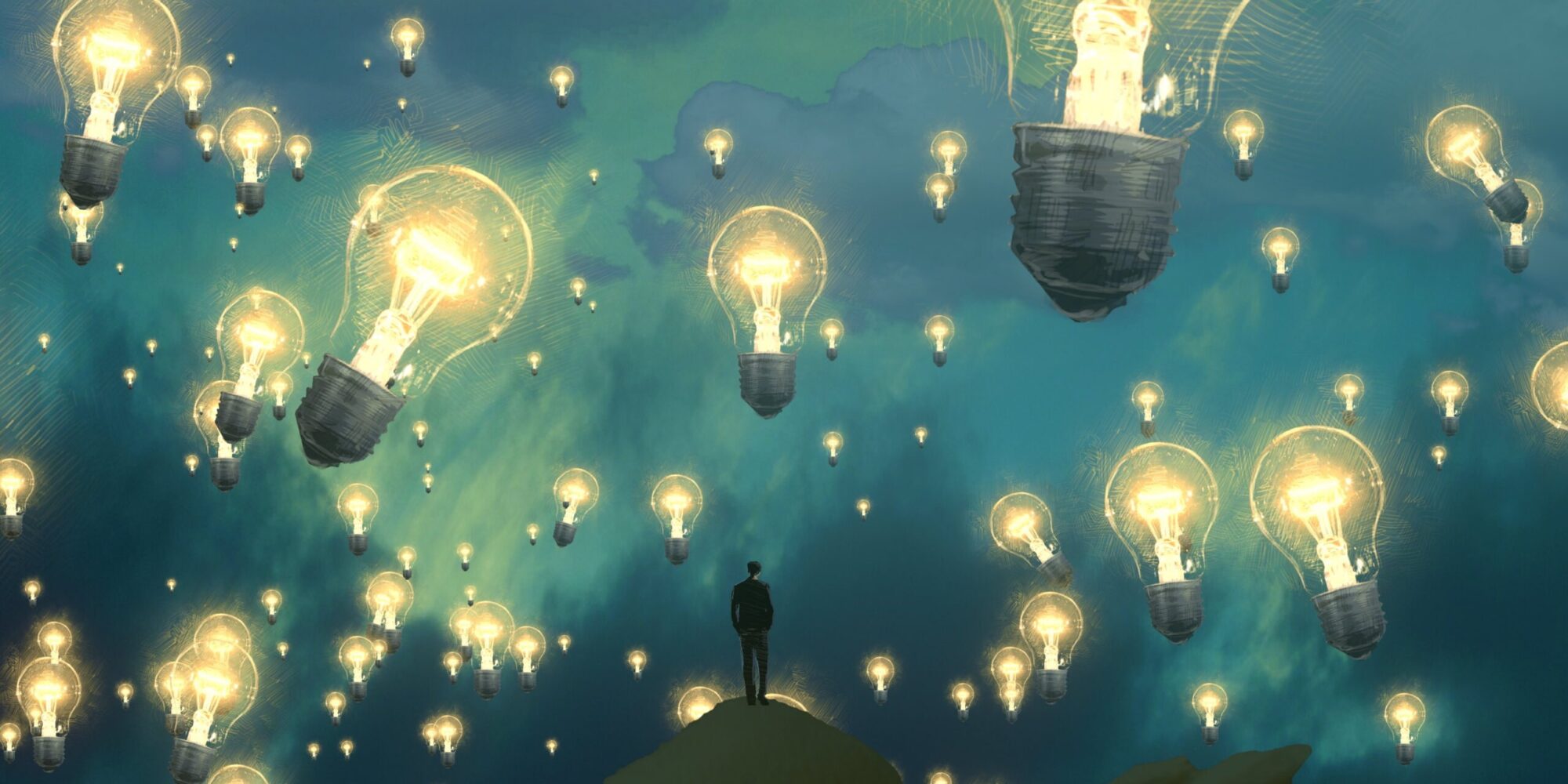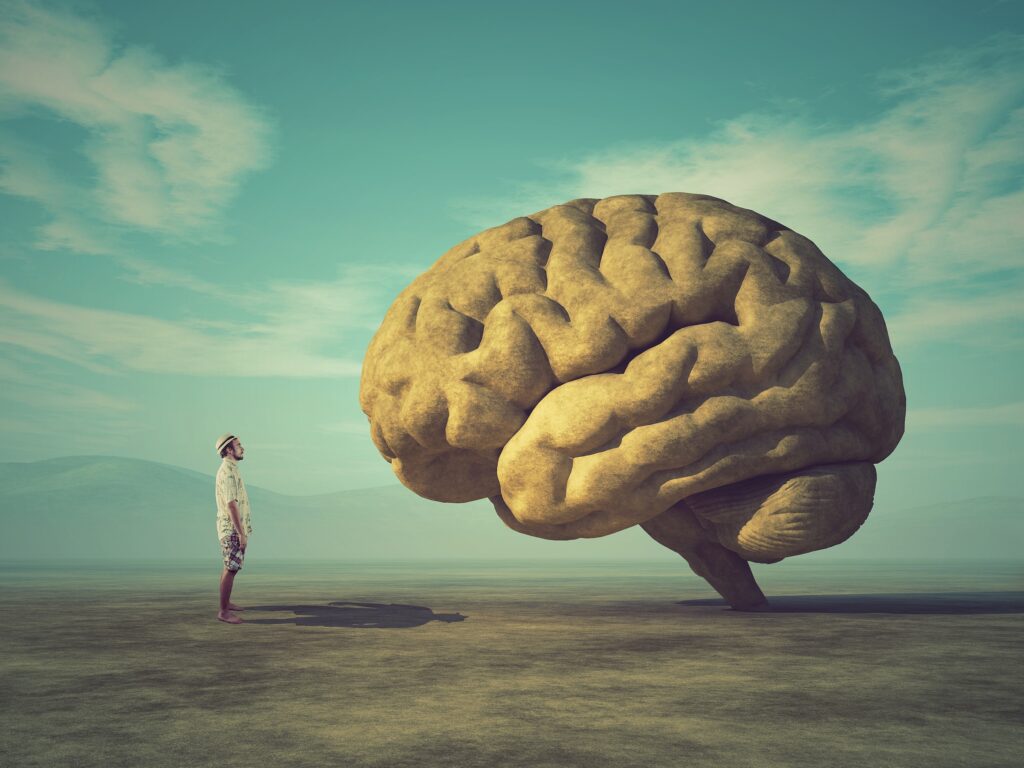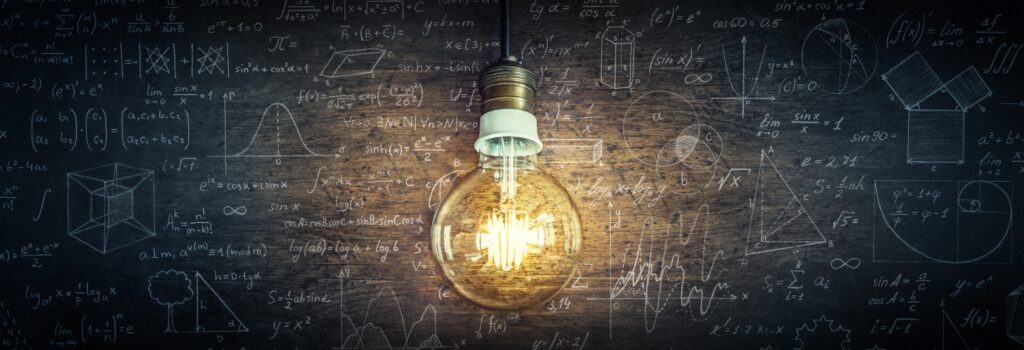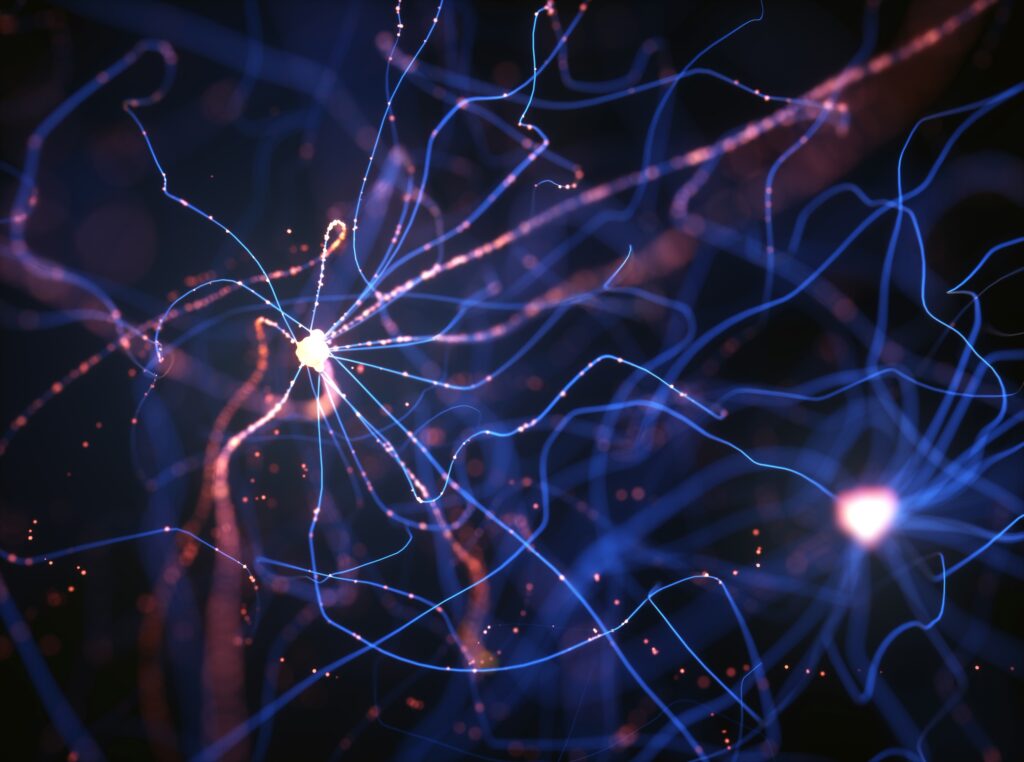Idealists all over the world
Reading | Metaphysics
![]() Prof. James Tartaglia, PhD | 2023-01-01
Prof. James Tartaglia, PhD | 2023-01-01

The repeated emergence of metaphysical idealism—the notion that reality is experiential in essence—across cultures, geographies and history should be explained not in terms of its cultural motivations, but its plausibility as a correct account of nature, argues Prof. Tartaglia in this scholarly but very accessible essay.
Idealism, Rorty and Kissinger
“Metaphysical idealism,” said American pragmatist philosopher Richard Rorty, in one of his characteristically bold and revisionary histories of philosophy, “was a momentary, though important, stage in the emergence of romanticism” (1982: 153). According to Rorty, idealism enjoyed its brief day in the sun when it emerged in late 18th-century Germany to safeguard religion and traditional morality from what was perceived as the threat posed by modern science. And although Rorty was keen to stress that this “specifically philosophical form of romanticism” (Ibid.: 143) had only “momentary” impact—part of his wider agenda to play down the cultural significance of philosophy—he nevertheless attributed lasting significance to romanticism. This is because it fostered a literary culture that is unafraid to “assert its spiritual superiority to science, to claim to embody what is most important for human beings” (Ibid.: 149). Rorty’s hopes for a better future were invested in this kind of culture—one of socially aware novels, cultural criticism, and the kind of philosophy typically designated “postmodern.” It is a culture, as he saw it, which never stops experimenting with new vocabularies for understanding and improving the human condition, thereby fighting off the threat of cultural stagnation from scientism, the mindset which privileges scientific vocabularies for their supposed proximity to the truth.
For Rorty, then, idealism was the beginning of a key episode in European intellectual history, but it is now obsolete, and obviously no longer represents a credible candidate for belief. For someone like myself, who thinks the core idealist claim that we occupy an experiential reality is probably true (Tartaglia 2020), it is natural to regard this appraisal as negative. But when you bear in mind Rorty’s total scepticism about metaphysics, akin to other American philosophers of his generation, such as Hilary Putnam, then it is the positive part of the assessment which stands out: idealism, a metaphysical worldview, is being credited with an important cultural influence! Rorty always had a soft spot for idealism, I think. He was immersed in it during his postgraduate studies, with both his supervisors being ex-students of A. N. Whitehead, and the extent of this debt is revealed when he refers to “Berkeley’s ingenuous remark that ‘nothing can be like an idea except an idea,’” which he glosses as a “misleading” way of saying that “we shall not see reality plain, unmasked, naked to our gaze” (154). In saying this, Rorty is effectively crediting Berkeley as the originator of his own trademark claim that there is no “Way the World Is” for our theories to “mirror” (Rorty 1979).
I was recently surprised to find Rorty’s distinctive thesis that romanticism begat postmodernism being espoused by Henry Kissinger (aged 99), Eric Schmidt (CEO of Google from 2001-2011) and Daniel Huttenlocher (leading AI researcher), in their book about artificial intelligence entitled, The Age of AI: and Our Human Future (2021):
The Romantics asserted that human emotion was a valid and indeed important source of information. A subjective experience, they argued, was itself a form of truth. The post-moderns took the Romantics’ logic a step further, questioning the very possibility of discerning an objective reality through the filter of subjective experience. (Ibid.: 210)
And AI, as they go on to argue, will take the next step by exploiting objective truths that human beings will not be able to understand, but which will nevertheless allow the AIs to accomplish our goals for us, such as discovering new medicines and weapons. However, they will also spread disinformation, which will hinder our efforts to form human consensuses about objective truths, so “human reason will find itself both augmented and diminished,” as Kissinger et. al. conclude.
If you put the Rorty and Kissinger stories together, it looks as if idealism played a monumental, and arguably disastrous, role in our intellectual history. Firstly, idealism offered a vision of reality which saw more metaphysical significance in the creative mind than the objective truths of science, thereby inspiring the romantic movement. Secondly, the romantics showed us, through their philosophical art and literature, that there is more to life than the objective truths of science. Thirdly, the postmoderns denied that there are any objective truths for science to discover. And fourthly, we invented a non-human intelligence, superior to our own, which looks set to turn human understanding of objective truth—or what we once mistook as such—into a thing of the past. This is a Geistesgeschichte [Editor’s note: history of ideas] worthy of Nietzsche: it ought to end “incipit Zarathustra,” or better still, “incipit HAL 9000” [Editor’s note: Zarathustra was philosopher Friedrich Nietzsche’s prophetic, all-knowing alter ego in his 1883 book, Thus Spoke Zarathustra. HAL 9000 was the fictional AI computer in Stanley Kubrick’s acclaimed 1968 science fiction film, 2001: A Space Odyssey].
If nothing else, this story provides a rare example of a fully formed “idealism is obsolete” objection. Suspicion of obsolescence is one of the main obstacles to a contemporary renaissance of idealism, but usually rests on little more than a vague suspicion that “nobody believes that anymore”—despite intellectual fashion being no great guide to the ultimate nature of reality. It is nice, then, to have a proper version of the objection to consider, even if it does fail. For the significance of idealism cannot be understood in terms of European history alone; not when idealism is an ancient, worldwide, and so—in all likelihood—essentially human phenomenon. Idealist philosophies have sprung up all over the world.
Universal Ideal
The uncontroversial part of Rorty’s history is that German idealism launched the romantic movement, and that both were influenced by concerns about science undermining religion. Kant’s revolutionary “transcendental” idealism of the 1780s showed how to “deny knowledge, in order to make room for faith,” as he put it (Kant 1787), portraying the ultimate reality as something we cannot know, due to limitations of the human intellect, although we can still have rational faith that God resides there. This had the important consequence that the reality described by science could not be the ultimate reality, thus relegating scientific understanding to metaphysical second place and removing its potential to undermine religion.
Kant’s successor, J. G. Fichte—“the true father of romanticism” as Isaiah Berlin saw it (1983: 58)—continued to prioritize God’s moral order over the natural one, while taking idealism in a radical new direction, one which invested great metaphysical significance in the power of imagination. This idea appealed to a talented new generation of creative writers who were emerging at the time, so when Fichte was appointed to a lectureship in Jena in 1794, this tiny town of 4000 residents became a magnet for the originators of romanticism, the “Jena Romantics”—a restless group of poets, novelists, translators, dramatists, philosophers and mystics, which centred on the Schlegel brothers, August and Friedrich, and their wives, Caroline and Dorothea. Their adventures are recounted in two recent popular books (Wulf 2022; Neumann 2022).
The controversial parts of Rorty’s history concern what happened before Kant and after Fichte.
Rorty’s narrative begins with Berkeley in the early 18th century, when “idealism becomes something very different from the tradition which starts with Anaxagoras and runs through Plato and various forms of Platonism” (1982: 144)—prior to that, he says only that idealism was concerned with “other-worldliness.” What changed with Berkeley was that idealism came to be seen “as a solution to an outstanding scientific difficulty,” namely that of subjective experience providing insufficient evidence for scientific claims about an objective, physical world. Rorty thinks this familiar philosophical problem of the “Veil of Perception” was originally seen as a scientific problem about “psychophysiological mechanisms,” to which idealism provided Berkeley with a novel answer, namely that awareness of objects and awareness of ideas are one and the same. This made idealism seem relevant to science, rather than just “other-worldliness,” thus inspiring Kant’s idea of idealism as a reflective super-science with the authority to relegate empirical science to metaphysical second place.
Immediately after Fichte and the beginning of romanticism, according to Rorty’s narrative, came “the beginning of the end for both idealism and philosophy” (Ibid.: 147), namely the advent of Hegel. This is because Hegel abandoned Kant’s and Fichte’s aspirations for idealism to be a provable doctrine and instead invented a new “literary genre” lacking “any trace of argumentation,” one which told of civilization passing through a succession of vocabularies, each collapsing to be replaced by the next, as the universal spirit evolves. This grand vision left “Kant’s ideal of philosophy-as-science a shambles” (Ibid.: 148), and so idealism stopped being taken seriously by anyone except philosophy professors, thereafter rapidly fading into the obscurity in which it languishes today.
And so there, in a nutshell, is Rorty’s historical account of idealism’s cultural significance. But what about its metaphysical significance? Should we not try to understand it on its own terms, rather than just looking for the cultural forces which shaped it, such as threats to religion or otherworldly longings? Rorty opted for the cultural approach because he was a post-truth thinker who denied there is a “Way the World Is,” and yet it seems obvious enough that not all beliefs can be explained this way. For example, an exclusively cultural explanation of belief in rivers would be radically misguided, since we can safely assume that people believe in rivers because rivers exist, or, at least, because we have exceptionally good reasons to think they do. The question we need to ask, then, is whether idealist beliefs should be explained culturally, or whether they are best explained by their having seemed to be true. And given that different cultures have independently developed idealist beliefs, just as they have independently developed beliefs about rivers, the answer seems clear: idealism is better explained by how reality has appeared to people, than by a worldwide coincidence of cultural purpose.
In the Upanishads of the Sacred Hindu Vedas, probably composed between 800 and 400 BCE, we find an idealist metaphysic repeatedly pressed home as the highest revelation of the wise. For instance, in the Chandogya Upanishad, which is one of the oldest, we are told that, “All this universe is in truth Brahman” and that Brahman is “the Spirit that is in my heart, smaller than a grain of rice” (Mascaró 1965: 114), the idea being that a person’s inner self is the same as the universal consciousness, as can be revealed in a transformative but ineffable experience in which the duality of experiencing-subject and experienced-object is transcended. In this state of oneness with the universe, as explained in Brihad-Aranyaka Upanishad, another of the oldest ones, we can paradoxically both see and not see; we see because “How could the Spirit not see if he is the All?”, but we do not see because “there is no duality there, nothing apart for him to see” (Ibid.: 136).
Here, then, is a form of metaphysical idealism that long predates not only Plato, but also Anaxagoras (whose unforgettable nickname was “Mr. Mind”) and even Parmenides, supposing that Parmenides’ strong monism is best interpreted as a form of idealism (see Dunham, Hamilton Grant and Watson 2011: 13-8). Like Plato’s idealism, the idealism of the Upanishads inspired one of the world’s great philosophical traditions; as P. T. Raju has put it, “Whitehead said that Western Philosophy is a series of footnotes to Plato… Similarly, Indian philosophy can be considered to be a series of footnotes to the Upaniṣhads” (1971: 15). One of these footnotes was the Consciousness-Only School of Buddhist philosophy, which spread from India to China and beyond, and which remains probably the best-known form of non-Western idealism.
Another good candidate for a culturally independent emergence of idealism is within African philosophy. Akan philosophy is a traditional African philosophy that has generated considerable interest due to its unique tripartite conception of personhood, a conception that combines soul, spirit and body. According to one of its principal expositors, Kwame Gyekye, it is a philosophy in which “ontological primacy (…) is given to the invisible,” where “invisible” is glossed as “immaterial, unperceivable, spiritual” (1987: 166); whether this means Akan metaphysics is best interpreted as a form of idealism (Tartaglia, forthcoming) or panpsychism (Agada 2017) is a matter for debate.
And a final candidate I shall mention for an independent emergence of metaphysical idealism is the Nahua philosophy of the Aztecs, according to which the ultimate reality is teotl, an all-encompassing spiritual process from which everything else, including the physical world, ultimately derives (Maffie 2014).
In the absence of a worldwide account of the cultural origins of metaphysical beliefs—which sounds like something only Mr. Casaubon from Middlemarch would attempt [Editor’s note: Reverend Edward Casaubon was a pedantic scholar in the 1871 fictional novel Middlemarch, by English author Mary Anne Evans. In the novel, Casaubon writes an implausibly ambitious book conceitedly titled The Key to All Mythologies.]—we cannot check whether the ancient Hindus, Aztecs and Akan were all inspired by the same cultural needs as Plato. As such, I suggest we return to the infinitely more straightforward view that idealist beliefs arose because they seemed to be true.
But why did they seem to be true? Because physical things appear within our conscious experience, and yet so do dreams and illusions, as well as feelings, imaginings and thoughts. The common factor is consciousness, so reflective people in different times, places and cultures have entertained the possibility that we live in an experiential reality. Once you also factor in the inspiration of mystical experiences of oneness with the universe, of the kind associated with the meditative practices of both the Vedic and Platonist traditions—experiences that make it practically impossible to maintain a naïve metaphysical attitude to the physical world—then it is hardly surprising that idealism exists, along with its cognates such as panpsychism.
Materialism: thank you and goodnight
Is idealism responsible for our decline into a post-truth world, via an intellectual sequence that passed through romanticism and postmodernism, and which will probably culminate with HAL 9000 and his colleagues banning us from even talking about truth? Surely not, for 20th-century anti-truth trends among a radical, high-brow elite must be understood within the much wider story of the success of science and technology in the 19th and 20th centuries. This success created a worldwide surge of trust in science to discover objective truths. And even were we to grant that romanticism begat postmodernism, the sequence must surely end there, because the roles imagined for postmodernism by both Rorty and Kissinger are utterly fantastical. Postmodern literary culture safeguards us from scientism, says Rorty, but scientism is rife in our world, with “naturalism” a badge of honour among today’s philosophers, and disdain for philosophy widespread among today’s scientists (see Tartaglia 2020: introduction). And it is among the most aggressively scientistic that contempt for Rorty’s brand of post-truth literary culture is most conspicuous; Rorty’s old friend Daniel Dennett provided a perfect example when he said that “what the postmodernists did was truly evil” (2017).
As for the Kissinger view of a transition from postmodernism to AI, the idea clearly cannot be that reading Derrida [Editor’s note: French deconstructionist philosopher Jacques Derrida] inspired the USA and China to invest billions in their current weaponized AI race. It must instead be the Hegelian idea of a societal intellectual evolution that only becomes clear after the event. But if that is the kind of story we are telling, we need to bring in another metaphysic of which the first recorded appearance is from ancient India, namely materialism.
Materialism, unlike postmodernism, is a powerful force in our world, because it is routinely conflated with science, atheism and rationality. Postmodernism may say that philosophy is dead and that there is no truth, but few listen, even when the statements are comprehensible enough for the unpretentious to be able to listen. Materialism, on the other hand, is a philosophy that encourages people to forget that there is such a thing as philosophy and to leave the discovery of truth to science. It is from the perspective of this deferential, results-based attitude that the receding of objective truth makes most sense, for if only specialists can understand the objective truth about reality anyway, it makes little difference if we transition to a situation where nobody can at all, so long as we can still use AI to bend reality to our wills.
Rorty said, in the early 1980s, that philosophers have “lost the conviction that they can tell one about the ultimate nature of reality,” and “will not regain their old position unless they can once again offer a view about the ultimate nature of reality to compete with that of science” (1982: 148). Since he thought idealism was “the only interesting suggestion along these lines they have come up with,” he concluded that “only if they can resurrect idealism will the rest of culture take their pretensions seriously”—adding, sardonically, that the ”one event seems as unlikely as the other” (Ibid.: 148). I think he was essentially right, but a return of idealism is now beginning to look rather less unlikely than it once did. Cultural developments can make metaphysical stances look attractive, as Rorty saw clearly, and since we now spend so much time in virtual environments, immersed in artificially produced experience, an idealist metaphysics may soon start to seem far more relevant to our lives than materialism’s focus on the physical guts that merely facilitate the experiences. Against the backdrop of the manifest failings of materialism, which has now gravitated to the absurd position that experience does not exist, I think the time is ripe for a resurrection of idealism—and philosophy with it. Then we might learn what it is like for people all over the world to treat the truth of idealism as a matter of common knowledge. What would such a world be like? Primitive materialist instinct has hitherto prevented us from finding out.
References
Agada, A. (2017) The apparent conflict of transcendentalism and immanentism in Kwame Gyekye and Kwasi Wiredu’s interpretation of the Akan concept of God. Filosofia Theoretica: Journal of African Philosophy, Culture and Religions, vol. 6: 23-38.
Berlin, I. (1983 / 1991) Giambattista Vico and Cultural History. In Berlin’s The Crooked Timber of Humanity, ed. H. Hardy (pp. 51-72). London: Fontana Press.
Dennett, D. (2017) Interview with Carole Cadwalladr: I begrudge every hour I have to spend worrying about politics. In The Observer [UK newspaper]; online at: https://www.theguardian.com/science/2017/feb/12/daniel-dennett-politics-bacteria-bach-back-dawkins-trump-interview
Dunham, J., Hamilton Grant, I. and Watson, S. (2011 / 2014) Idealism: The History of a Philosophy. London: Routledge.
Gyekye, K. (1987 / 1995) An Essay on African Philosophical Thought: The Akan Conceptual Scheme. Philadelphia: Temple University Press.
Kant, I. (1787 / 1933) Critique of Pure Reason, trans. N. Kemp Smith. London: Macmillan.
Kissinger, H., Schmidt, E. and Huttenlocher, D. (2021) The Age of AI: and Our Human Future. New York: Little, Brown and Company.
Maffie, J. (2014) Aztec Philosophy: Understanding a World in Motion. Boulder: University Press of Colorado
Mascaró, J. (trans.) (1965) The Upanishads. London: Penguin.
Neumann, P. (2022) Jena 1800: The Republic of Free Spirits, translated by S. Frisch. New York: Farrar, Straus and Giroux.
Raju, P.T. (1971) The Philosophical Traditions of India. London: Routledge.
Rorty, R. (1979) Philosophy and the Mirror of Nature. Princeton: Princeton University Press.
Rorty, R. (1982) Nineteenth-Century Idealism and Twentieth-Century Textualism. In Rorty’s Consequences of Pragmatism (pp. 139-159). Brighton, UK: Harvester Press.
Tartaglia, J. (2020) Philosophy in a Technological World: GODS AND TITANS. London: Bloomsbury.
Tartaglia, J. (forthcoming) Gyekye and Contemporary Idealism. In A. Attoe, S. Segun, V. Nweke and J-B Umezurike (eds.) Conversations on African Philosophy of Mind, Consciousness and AI, New York: Springer.
Wulf, A. (2022) Magnificent Rebels: The First Romantics and the Invention of the Self. New York: Alfred A. Knopf.

Essentia Foundation communicates, in an accessible but rigorous manner, the latest results in science and philosophy that point to the mental nature of reality. We are committed to strict, academic-level curation of the material we publish.
Recently published
Reading
Essays
Seeing
Videos
Let us build the future of our culture together
Essentia Foundation is a registered non-profit committed to making its content as accessible as possible. Therefore, we depend on contributions from people like you to continue to do our work. There are many ways to contribute.















